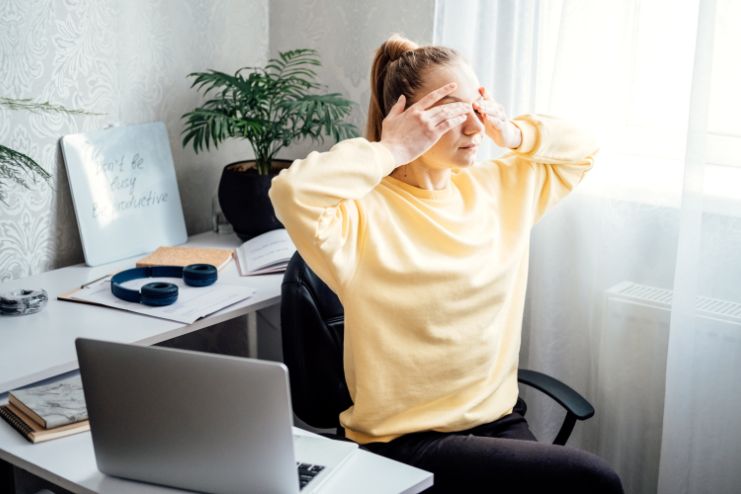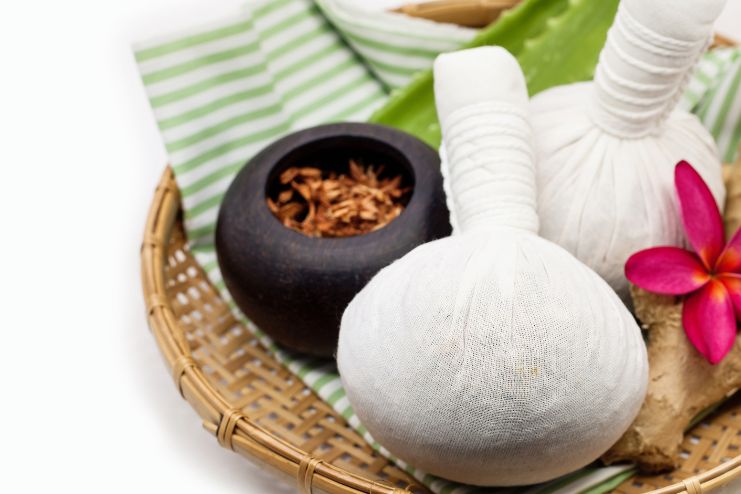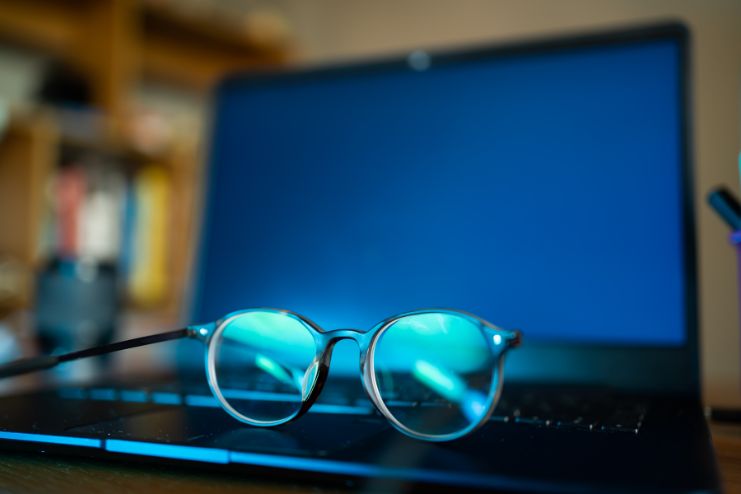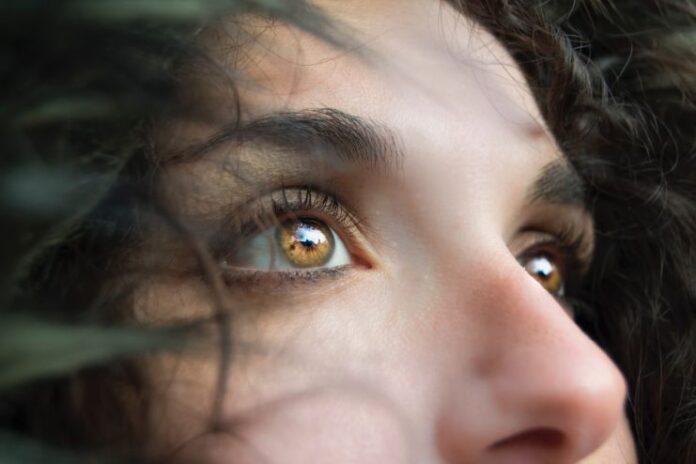Affiliate Disclaimer
Some links in this article are affiliate links. We may earn a small commission if you make a purchase through these links, at no extra cost to you. We only recommend products we find useful to our readersA healthy and productive life depends on having good vision. Thanks to our eyes, we comprehend information, navigate the world, and appreciate the beauty of life. However, eye health can decline due to pollution, aging, and increased screen time, resulting in dryness, irritation, or even vision impairment.
Because poor vision can impact everyday activities and quality of life, maintaining a healthy vision is essential for overall well-being.
Natural home remedies can also support and improve eyesight, even if medical examinations and prescription glasses are essential for eye care. A nutrient-rich diet, simple lifestyle adjustments, and holistic practices can maintain intense, healthy eyes.
Natural solutions can be a valuable strategy to promote long-term vision health, from including foods that are good for the eyes to exercising daily. This article will discuss six simple yet efficient natural ways to maintain eye health and enhance vision.
Read More: Dry Eyes: 10 Best Eye Drops 2021; Causes, Symptoms, Treatment
1. Balanced Diet for Optimal Eye Health

When discussing diet and health, we frequently highlight tangible benefits like lowering blood pressure or maintaining a healthy weight. It’s easy to identify these common health benefits, but it’s also true that eating the correct foods can have less evident advantages, such as maintaining eye health throughout life.
Enhancing your diet with potent vitamins, minerals, and antioxidants can help you see better and maintain better eye health. Researchers have linked nutrients that are good for the eyes, such as zinc, vitamin C, vitamin E, and lutein and zeaxanthin, to a lower incidence of cataracts and age-related macular degeneration.
Green leafy vegetables, fruits, nuts, and many other foods contain these antioxidants.
Look for these essential vitamins and nutrients for healthy eyes:
Vitamin A: Vitamin A, sometimes referred to as retinol, makes the pigments in the retina of the eyes. More significantly, it is essential for your eyes’ photoreceptors, which control how well you see in dim light. Although some plant elements help your body produce vitamin A, only animal sources contain vitamin A directly.
Vitamin C: Research indicates that vitamin C reduces the likelihood of cataract development and can decrease age-related macular degeneration and loss of visual acuity when combined with other vital nutrients. Try including oranges, grapefruit, strawberries, papaya, green peppers, and tomatoes in your diet to get your recommended daily intake.
Vitamin E: Vitamin E shields the eye’s cells from free radicals and unstable chemicals that damage healthy tissue. Vitamin E-rich foods include sweet potatoes, wheat germ, almonds, and vegetable oils.
Essential Fatty Acids: Omega-3 fatty acids are crucial for retinal function and healthy visual development. Research on preterm and full-term babies shows that a diet rich in omega-3 fatty acids is crucial for the best possible visual development. The finest sources of omega-3 fatty acids include cold-water fish like salmon, tuna, and others. These foods can nourish the oily outer layer of the eye, improve tear formation, and lessen inflammation.
2. Hydration and Eye Care

Drinking enough water is essential for maintaining the health and functionality of every bodily part, including the eyes. Water encourages the body to produce tears, lubricating the eyes and removing dust and debris, shielding them from irritation and infection.
Water makes up the majority of the vitreous body of the eye, which preserves the eye’s shape and visual characteristics. Maintaining sufficient hydration helps guarantee that this gel-like substance retains its structure and functionality, which is essential for healthy eyesight.
Adequate hydration facilitates the body’s natural detoxification functions, particularly those of the eyes. Adequate water consumption can help avoid the accumulation of substances that could injure the eyes, such as by contributing to disorders like glaucoma or cataract formation, by aiding in flushing waste products and toxins.
Not all tears are for crying. That’s not even their primary use. Tears are essential for maintaining the comfort and hydration of your eyes, removing dust and other debris, and avoiding the growth of bacteria that can lead to illnesses.
Healthy tears consist of three separate layers: an inner layer containing mucus, an outside layer that is oily, and a middle layer that is watery.
One of tears ‘ lesser-known roles is making it easier for light to enter the eye. This is why persistently dry eyes can produce blurred vision. The cornea, known as the transparent layer at the front of the eye that aids in focusing incoming light, may develop ulcers due to dehydrated eyes.
Maintaining adequate hydration can also lessen the visibility of dark circles and puffiness around the eyes. Dehydration, which can cause the sensitive skin around the eyes to darken and sink, frequently makes these diseases worse.
By prioritizing water, you can maintain comfortable, clear vision, enhance tear production, and promote eye health.
Read More: How to Remove Bags Under Eyes
3. Eye Exercises for Strength and Flexibility

Eye fatigue has become a prevalent issue with the growing dependence on screens. Over time, the tension in our eye muscles from continuous digital scrolling and computer use might impair vision. However, eye strengthening exercises can help reduce tiredness, strengthen weak eye muscles, and enhance general eye health, just like they can for other muscles in the body.
Break your lousy eyesight habits and start exercising for your general health because it will help you stay in shape and prevent several eye conditions. These eye relaxation exercises will significantly enhance your vision and lessen eye strain, whether you want to keep your eyesight from worsening or don’t want to use glasses anytime soon.
Blink More Frequently: Prolonged use of computers and other digital devices, such as TV displays, causes dry eyes, headaches, strain, and blurred vision. When you immerse your eyes in the screen, your blink rate drops from 20 bpm to 6–8 bpm. Therefore, the next time you experience eye strain, intentionally blink your eyes to lubricate them and refresh your brain so that you can receive new visual information more effectively.
Palming: This yoga eye technique suggests calming the muscles surrounding the eyes to lessen eye fatigue. To begin palming, warm your hands by rubbing them together. Place the palm of each hand over the matching cheekbones while closing your eyes. For around five minutes, cup your hand over each eye and take deep breaths.
Roll Your Eyes: To do these eye exercises, roll your eyes slowly to the right and then slowly turn your head to the left. Continue performing the same thing in different directions. Next, glance from right to left, up and down, and finally, in a circle to shift your focus in various directions.
Use the 20-20-20 Rule: Every 20 minutes, take a 20-second break and concentrate on something at least 20 feet away from you to prevent eye fatigue. This practice relaxes your facial muscles and prevents long-term eye strain and injury, offering general comfort.
The Figure 8 Exercise: Picture a prominent figure eight from ten feet away. Using your eyes, trace this shape while keeping your movements smooth. It is a great way to enhance your eyesight and increase your ability to track.
Read More: Combat Digital Eye Strain: 7 Blue Light Blocking Glasses for Screen Time Relief
4. Herbal Eye Compress for Relaxation

The condition known as dry eye syndrome occurs when your eyes aren’t lubricated sufficiently by your tears or when you’re not making enough of them. There are numerous reasons for dry eye syndrome, ranging from dry air and allergies to aging or illnesses that impair the body’s capacity to produce tears.
Applying herbal eye compresses, which are infused with the therapeutic qualities of herbs like calendula and chamomile, is a natural and efficient method to relieve tired eyes, lessen puffiness, and encourage relaxation. These compresses aid in the relief of dryness, inflammation, and eye strain.
They are invaluable for people who frequently get eye fatigue from lengthy screen usage or environmental stressors.
Herbal Eye Compresses’ Advantages:
Reduces Eye Strain: Herbal extracts reduce tension and relax the muscles in the eyes.
Reduces Puffiness: Calendula and chamomile’s anti-inflammatory qualities aid in reducing under-eye bags and puffiness.
Reduces Irritation and Dryness: Warm compresses encourage the production of tears and relieve the pain brought on by dry eyes.
5. Blue Light Protection Tips

Employees spend more time on screens than ever before as digital gadgets become essential parts of nearly every workplace. Whether working from home or in the office, gadgets like laptops, computer monitors, tablets, and cell phones continuously expose employees to blue light.
Recognizing blue light is the first step to successfully lowering exposure to it. Both computer screens and the sun emit blue light, a high-energy light. The sun provides our most significant source of blue light, but digital screens, often placed near our eyes, continuously emit blue light.
Blue light suppresses melatonin in the brain. Overexposure to blue light might make it difficult to fall asleep because melatonin helps people feel fatigued. A lack of sleep then affects one’s mood, productivity at work, and general well-being.
Ways to Lower Exposure to Blue Light:
Put on Blue Light Blocking Glasses: Numerous kinds of glasses can shield your eyes from damaging blue light. A unique coating on blue light computer eyewear helps block harmful rays. Contact wearers can also choose blue light-blocking lenses. You can add these to your contact prescription to help safeguard your eyes.
Modify Computer Monitor Brightness: Workers should reduce the brightness of their computer monitors if they are working in a dim environment or at night. Employers should encourage staff to take this precaution when working in dimly lit areas since many users don’t use these adjustments and typically leave the monitor’s brightness intensity high.
Adjust Screen Distance and Monitor Height: Many contemporary monitors have height and screen distance adjustments, which let users set up their workspaces ergonomically. Setting the monitor at eye level can avoid hunching and bad posture.
Read More: Home Remedies for Better Vision
6. Adequate Sleep for Eye Restoration

Daily decision-making and thought processes keep our thoughts extremely active, yet to excel in our daily tasks, we must take breaks to rejuvenate our bodies, minds, and eyes. Although a whole night’s sleep is the cure, the effects of sleep deprivation are evident. An intriguing connection exists between our eye health and the amount and quality of sleep we receive.
Sound sleeping practices significantly impact eye care. Maintaining a regular sleep-wake cycle promotes improved sleep quality, which is good for eye health by regulating the body’s internal clock. Sleeping seven to nine hours per night will help keep your eyes healthy.
Sleep’s Significance for Eye Health:
Rejuvenation: Your eyes gain from the body’s healing processes when you sleep, just like any other organ. The body restores fluids, renews cells, and repairs any harm caused by strain, stress, or pollution during the day.
Tear Film Restoration: The tear film in the eyes, which keeps them balanced, moist, and shielded from dust and debris, is restored as we sleep. However, decreased tear production brought on by sleep deprivation may cause your eyes to feel dry, scratchy, or irritated.
Reduce Eye Pressure: Research has indicated that getting enough sleep lowers the eyes’ intraocular pressure (IOP). This will significantly benefit those who suffer from glaucoma, a disorder marked by elevated eye pressure that can harm the optic nerve.
Read More: The LED Face Mask Trend: Do Light Therapy Masks Actually Work for Your Skin?
Conclusion
The secret to long-term vision health is taking natural care of your eyes, which serve as your window to the outside world. You may maintain the strength, resilience, and freshness of your eyes by using easy yet efficient home remedies. A diet high in vitamins A, C, E, and omega-3 fatty acids supports eye health from the inside out, and drinking enough water keeps your eyes hydrated and clear.
Herbal compresses offer a restful haven for weary eyes while mild eye exercises improve flexibility and attention. Preventing strain and exhaustion requires taking regular screen breaks, creating a healthy sleep schedule, and protecting against blue light.
Little routines that are maintained have a significant impact. Including these natural eye-care techniques in your everyday routine may preserve your eyesight, lessen discomfort, and keep your eyes healthy and brilliant for many years. Your eyes do a lot of work for you; start caring for them now!
References
- https://www.hopkinsmedicine.org/health/wellness-and-prevention/nutrition-and-eye-health
- https://www.aoa.org/healthy-eyes/caring-for-your-eyes/diet-and-nutrition?sso=y
- https://www.lovelandeyecare.com/2024/05/02/the-connection-between-water-and-vision-health/
- https://www.completeeyecare.net/featured-articles/how-does-hydration-affect-my-eyes/
- https://www.laytonvisualcenter.com/2024/05/02/the-critical-role-of-hydration-in-maintaining-eye-health/
- https://www.omnieyenc.com/stay-hydrated-stay-healthy-why-water-matters-for-your-eyes/
- https://www.insightvisioncenter.com/6-eye-relaxation-exercises-actually-work-improve-vision/
- https://www.healthline.com/health/warm-compress-for-dry-eyes
- https://www.webmd.com/eye-health/eyes-warm-compress
- https://eyesafe.com/5-tips-for-managing-blue-light-in-the-workplace/
- https://www.bettervisionguide.com/blue-light-eye-damage/
- https://www.optometrists.org/general-practice-optometry/guide-to-eye-exams/eye-protection-at-home/protecting-your-eyes-from-blue-light/
- https://eyecareneworleans.com/how-can-getting-a-good-nights-sleep-help-to-improve-eye-health/
- https://www.thenewyorkeyedoctor.com/post/how-sleep-affects-your-eye-health-and-vision.html
In this Article




















